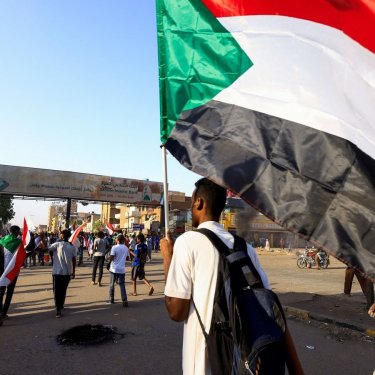Journalists still trapped in Sudan’s civil war

As Sudan’s journalists continue to be trapped in an eight-month-old civil war, Reporters Without Borders (RSF) reminds the two parties to the conflict, the regular army and the paramilitary Rapid Support Forces, that they could be held criminally responsible if journalists are killed or injured, and that protecting media personnel must be a priority.
Recent media victims include Amar Dhaw, a reporter for the Sudan 24 TV channel and the Saqia Press website, who was attacked and beaten by a policeman in the eastern province of Al Qadarif, at the start of December, just for filming a police car for the report he was working on, according to information gathered by RSF.
During the same period, the paramilitaries kidnapped two journalists. Sudan News Agency reporter Mohamed Abderrahim was abducted outside his home in the capital, Khartoum, on 3 December, according to the information obtained by RSF, while Bahaeddine Abou Kassem, a journalist with the daily newspaper Akhbar Al Yawm, was also kidnapped in early December, his sister reported to his colleagues, as the Sudanese Journalists’ Union said. There has been no news of either since then.
Media outlets and journalists have been subjected to serious and repeated attacks since fighting first broke out on 15 April between the Sudanese army and the paramilitary Rapid Support Forces.
“The parties to this war must be reminded that they could be held criminally responsible in the event of attacks on the physical integrity of journalists, who are protected by international law in conflict situations. Journalists must under no circumstances be targeted, or arrested or detained for doing their job. The perpetrators will be held accountable for their misdeeds.
The persecution of media and journalists is surging as a result of the rivalry between regular army Gen. – and de facto leader – Abdel Fattah al-Burhan, who has his headquarters in Port Sudan and controls the territories east of the Nile, and Gen. Mohamed Hamdan Daglo, also known as “Hemetti,” the leader of the paramilitaries, who is based in Khartoum and controls several major cities in Darfur and the west of the country.
“Even crossing the street and just going out then returning to the newspaper has become an obstacle course,” Amr Chabane, the editor of the Khartoum-based newspaper Al Sudani told RSF. “We’re located in a dangerous area that has seen many clashes and shoot-outs.”
Looted media
The headquarters of Sudan’s General Authority for Radio and Television, which is located in the Khartoum suburb of Omdurman, was turned into a detention centre a few weeks ago, the Sudanese Journalists’ Union says, condemning “this irresponsible behaviour which exposes the country’s history heritage to destruction and disappearance.”
The union also reports that equipment is being looted from public radio and TV stations and is being sold on the city’s sidewalks. The Blue Nile TV channel has suffered the same fate. All of its equipment has been stolen and placed on sale in Omdurman’s Libya market.
Three other prominent media outlets, the Sudan 24 and Al Balad TV channels and the BBC’s Khartoum bureau, have also been vandalised and looted, according to the Sudanese Journalists’ Union, which called on all regional and international press freedom organisations to denounce what is happening, and work to stop it.
Journalists in Sudan report that, in the past eight months, 26 print newspapers have stopped publishing and ten national radio stations have stopped broadcasting. Seven local radio stations have also closed and only two are still broadcasting, albeit but randomly.
